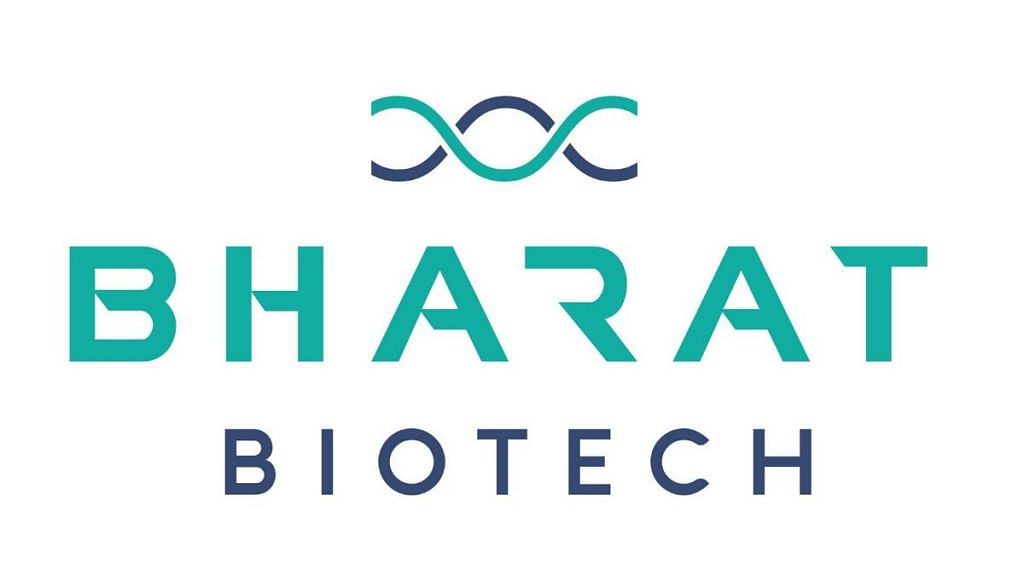New Delhi: Bharat Biotech’s Covid-19 vaccine Covaxin has been recommended for conditional approval by the Drug Controller General of India (DCGI) based on Phase 3 immunogenicity data for 24,000 volunteers after the first dose, and for 10,000 volunteers after the second dose, say top sources. The two shots are given 28 days apart. The data that has reportedly been submitted to the drug controller is, however, not in the public domain.
The Phase 3 trial of Covaxin was registered with the Clinical Trial Registry of India on November 9, 2020 and the double blind placebo controlled multicentre study was to be done on 25,800 volunteers. The actual recruitment started only on 16 November. The recommendation by the subject expert committee of the DCGI comes weeks after the company admitted that it is thousands of volunteers short for its phase 3 trials.
“The company has submitted immunogenicity data for 10,000 people after they have received the first dose of the vaccine and for 10,000 people after two doses. The SEC has reviewed the data and has taken a call to give conditional approval,” said a source.
Bharat Biotech’s Covaxin is a collaborative effort between the company, known for its low-cost vaccines, and the Indian Council of Medical Research. The virus that was used to develop the vaccine, which is basically an inactivated virus that is introduced into the body to trigger an immune response, came from the National Institute of Virology, Pune.
Covaxin is the first indigenous Indian Covid-19 vaccine that is likely to get the drug controller’s approval soon. It got into an inadvertent controversy early on after ICMR DG Dr Balram Bhargava — in a letter to principal investigators working on Covaxin trial — had told them on 2 July, when the trials had not even started, that the vaccine would be launched by 15 August.
“Bharat Biotech has announced successful recruitment of 23,000 volunteers, and continued progress towards achieving the goal of 26,000 participants for Phase-3 clinical trial of COVAXIN™ across multiple sites in India. The Phase III human clinical trials of COVAXIN™ began mid-November, targeted to be done in 26,000 volunteers across India, this is India’s first and only Phase III efficacy study for a COVID-19 vaccine, and the largest phase III efficacy trial ever conducted for any vaccine in India. COVAXIN™ has been evaluated in approximately 1000 subjects in Phase I and Phase II clinical trials, with promising safety and immunogenicity results, with acceptance in international peer reviewed scientific journals,” the company said in a statement Saturday.
Also read: Everything you need to know about Covaxin, India’s controversial Covid vaccine candidate
First assessment from 42 days-12 months
According to the trial registration document, the aim of the Phase 3 trial is “To evaluate the efficacy of BBV152B to prevent symptomatic COVID-19 (Virologically confirmed-RT-PCR positive) which include any participant who meets the Case Definitions for Symptomatic Endpoint and Severe Symptomatic COVID-19.” BBV152B is the working name of Covaxin for trial purposes.
The protocol also says that assessment of this primary outcome is to happen at various time points from 42 days to 12 months. From 16 November, the 42-day period was completed on 28 December.
However, by 22 December, the company had managed to recruit only 13,000 volunteers.
Earlier, Bhargava, when asked about Bharat Biotech’s application for emergency use authorisation without any phase 3 data in the public domain, had said: “The temporary licensure or compassionate or emergency use … the regulator probably has to be satisfied with the risk-benefit ratio. The benefit has to be more than the risk, clearly, and in this emergency situation, if the benefit is more, he may consider.”
The phase 2 trials of the vaccine showed that the vaccine is safe with no serious adverse events being reported. However, one serious adverse event was reported during Phase 1 trial. As per protocol, the DCGI was informed, and the trial was allowed to proceed. The Phase 1 data, too, is in the public domain.
Also read: What next as govt expert panel gives conditional nod for Covid vaccines Covaxin and Covishield
